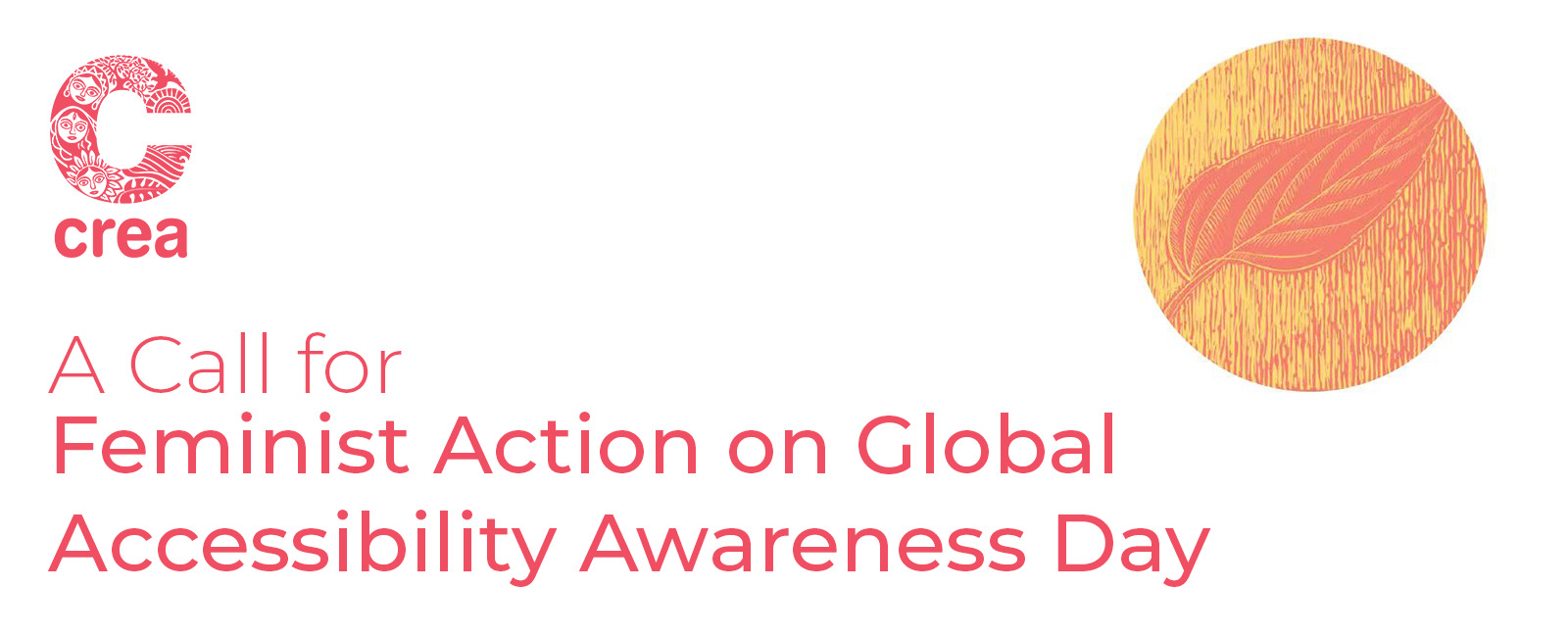
18 May 2023
CREA is proud to be a leader of the Generation Equality Action Coalition on Feminist Movements and Leadership, and in that role and beyond, to advocate for strong and sustainable feminist movements and participation and leadership at all levels worldwide. We celebrate the pivotal place that women with disabilities have held in shaping feminist movements and in creating a world where gender equality, disability justice, and human rights are fully realized.
We also recognize a critical gap in feminist movements and spaces: they are frequently inaccessible for people with disabilities. This gap is particularly apparent in the spaces where movements convene and where policymakers and others make decisions about how to advance gender equality and women’s rights.
“…without accessibility we cannot participate in private, social or political life. In events on gender equality, if there is no accessibility, we are left behind and discriminated against.”
– Cristina Dueñas, a member of the Inclusive Generation Equality Collective from Spain
Today—on Global Accessibility Awareness Day—and moving forward, CREA calls on all feminist actors to recognize that accessibility is a core feminist value and a prerequisite for inclusive, diverse feminist movements and leadership. Feminist actors can and should make accessibility a part of their routine, whether that means hosting events and meetings in physically accessible locations, providing sign language interpretation or closed captions, ensuring quiet spaces and breaks, or otherwise just asking what feminists with disabilities need to participate and be included.
We further call on all feminist actors to #CommitToAccess and sign on to the Feminist Accessibility Protocol. In December 2022, a group of feminists with disabilities and allies called the Inclusive Generation Equality Collective launched the Feminist Accessibility Protocol [LINK] in an effort to uplift accessibility as a feminist value and provide guidance on how to ensure accessibility in feminist spaces. The Protocol calls on States, United Nations agencies, feminist civil society, and other feminist actors to uphold intersectional feminist values and ensure that gender equality and women’s rights spaces are fully accessible to and inclusive of feminists with disabilities in all of their diversity.
When gender equality and women’s rights spaces are accessible and inclusive, it transforms the ways in which feminists with disabilities can participate and contribute.
“Space with sign language interpretation, with three/four sign languages, different methods of access, changes the whole quality and feeling of a space.”
– participant in CREA’s Disability, Sexuality and Rights Online Institute
Together, we can create a lasting impact by ensuring that accessibility remains at the core of our feminist values and underpins our work to build sustainable, diverse and inclusive feminist movements and leadership.